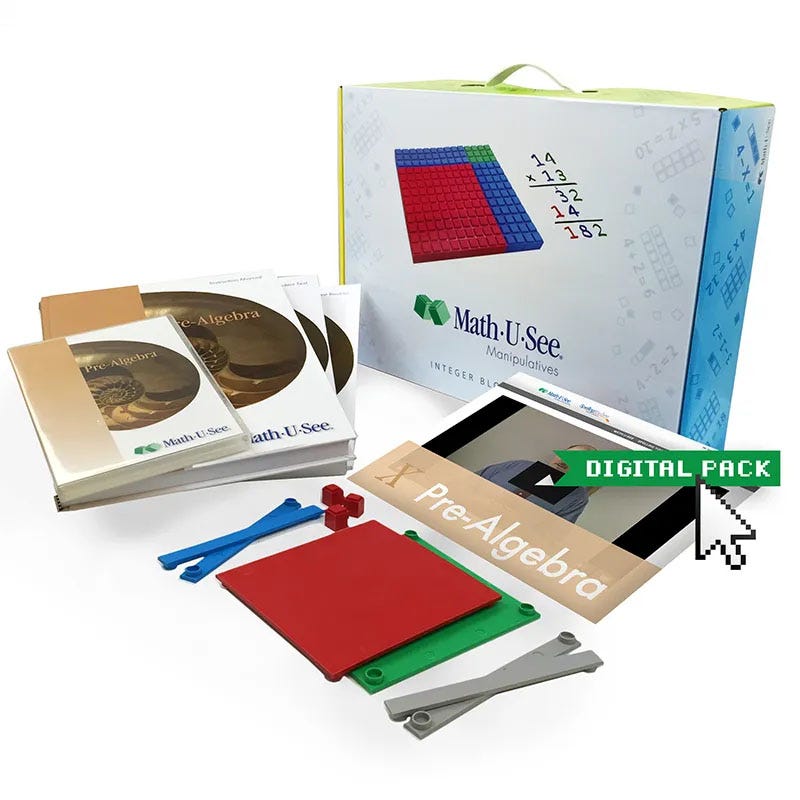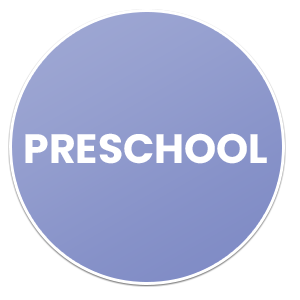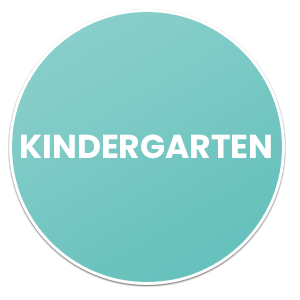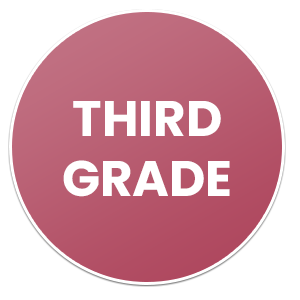7th Grade Homeschool Curriculum
Understanding that children mature at their own rates, BookShark uses age-based levels instead of a traditional grade system. This adaptability allows you to choose a homeschool curriculum that fits your child’s growth, helping them thrive at their own natural pace. Plus, BookShark is perfect for use with multiple children of different ages.
Choosing the right curriculum for your 7th grader is an important step in their educational journey. As students transition into adolescence, their learning needs become more complex and demanding. With so many options available for a 7th grade homeschool curriculum, it can feel overwhelming to determine what will best support your child’s growth.
From math and science to language arts and social studies, each subject plays a crucial role in shaping young minds. Whether you’re new to homeschooling or looking for ways to enhance your current approach, understanding the essentials of seventh grade education is key.
In this guide, we’ll explore what you should teach your child during this pivotal year, how much time they should dedicate to study each day, and which curricula stand out among the rest. Let’s dive into everything you need to know about creating an engaging and effective homeschool experience for your 7th grader!


What Should I Be Teaching My 7th Grader?
When planning your 7th grade homeschool curriculum, focus on a diverse range of subjects that will challenge and engage your child.
Mathematics is essential at this stage. Students should learn concepts like ratios, proportions, and basic algebraic equations. This foundation prepares them for more advanced math in high school.
In science, explore life sciences or physical sciences to spark curiosity about the world around them. Topics such as ecosystems or simple physics can be both fun and enlightening.
Language arts is vital for developing communication skills. Encourage reading comprehension through novels and non-fiction texts while enhancing writing abilities through essays and creative projects.
History or social studies should cover significant events that shaped societies, promoting critical thinking about current events and cultural awareness.
Incorporate practical skills such as financial literacy or even coding to prepare them for real-world challenges ahead.
How Many Hours Should a 7th Grader Homeschool?
Determining how many hours a 7th grader should spend on homeschooling can vary widely. Generally, a range of three to five hours per day is considered effective for this age group.
Consider the subjects being taught and the depth of each lesson. Some topics may require more time than others. Flexibility is one of the biggest advantages of homeschooling, allowing families to adapt schedules based on their unique needs.
Incorporating breaks can enhance focus and retention. Short sessions followed by brief breaks often yield better results than long stretches without pause.
Hands-on activities or field trips can also supplement learning in ways that traditional classrooms might not allow, making some days feel longer while being incredibly productive.
It’s important to monitor your child’s engagement levels to ensure they are getting the most out of their educational experience. Adjusting hours based on interest and comprehension will lead to a more fulfilling homeschool journey. BookShark lists the expected hours in our all subjects packages for both parent and student.
Which Curriculum is Best for Homeschooling 7th Grade?
Choosing the right 7th grade homeschool curriculum can greatly impact your child’s learning experience. It’s essential to find a program that aligns with their interests and learning style.
Some families prefer all-in-one curriculums, which provide cohesive lessons across subjects. These are convenient and often save time in planning. Other parents might opt for subject-specific resources, allowing them to tailor education more closely to their child’s needs.
Online platforms have gained popularity too. They offer interactive content and flexibility in scheduling, making it easier for students to engage with materials at their own pace.
Consider factors like teaching philosophy, resource availability, and support systems when selecting a curriculum. What works best depends on you and your student’s preferences..


An All-In-One 7th Grade Homeschool Curriculum
An all-in-one curriculum for 7th grade is a great option for homeschooling families seeking simplicity. It combines multiple subjects into one cohesive package, making lesson planning much easier.
These curricula often include resources for math, science, language arts, and social studies. This integration allows students to make connections between different disciplines.
Many programs also incorporate hands-on activities and projects that foster creativity and critical thinking skills. Parents appreciate the structured approach while still having flexibility in their teaching methods.
The best part? Most all-in-one curriculums come with online support or community forums where parents can seek advice or share experiences. This network helps create a sense of belonging among homeschooling families.
Choosing an all-in-one 7th grade homeschool curriculum can streamline your educational journey, allowing you to focus more on learning rather than logistics.
What Math Should Be Taught In 7th Grade?
In 7th grade, math takes on a more challenging and engaging form. Students are introduced to concepts that deepen their understanding of numbers and relationships.
Algebra is a key focus. They start solving simple equations and working with variables. This builds the foundation for higher-level math in the future.
Ratios and proportions also come into play, helping students make sense of comparisons between quantities. Understanding percentages opens doors to real-world applications like shopping discounts or interest rates.
Geometry becomes essential as well. Students explore angles, area, volume, and the properties of shapes. These concepts encourage spatial reasoning skills.
Data analysis begins to take shape through statistics. Collecting data sets allows students to learn how to interpret graphs and understand averages effectively.
Through this varied curriculum, 7th graders develop critical thinking skills that prepare them for advanced subjects ahead.


What Science Should be Taught in 7th Grade?
Seventh grade is an exciting time for scientific exploration. Students should dive into life sciences, focusing on ecology and the interdependence of organisms within their environments.
Understanding ecosystems prepares them to appreciate biodiversity and the importance of conservation. They can even conduct hands-on projects like creating a mini-garden or studying local habitats.
Physical science plays a crucial role as well. Concepts such as energy forms, forces, and motion introduce students to fundamental principles that govern our world.
Encouraging experimentation is vital at this stage. Simple experiments can illustrate concepts like chemical reactions or physics laws in action.
Earth science should not be overlooked, either. Topics such as geology, weather patterns, and planetary systems ignite curiosity about our planet’s processes and beyond.
Incorporating current events related to scientific advancements helps make lessons relevant. This way, your child can connect classroom knowledge with real-world issues they care about.

What Language Arts Should Be Taught in 7th Grade?
Seventh grade is a pivotal time for language arts development. Students should explore various genres of literature, including poetry, short stories, and novels. This exposure helps them appreciate different writing styles and themes.
Fostering strong reading comprehension skills is essential. Encourage your child to analyze texts critically, identifying main ideas and supporting details. Discussion about the characters’ motivations can deepen understanding.
Writing becomes more sophisticated at this level. Teach your seventh grader to craft essays with clear theses and structured arguments. Incorporate creative writing assignments to spark their imagination.
Vocabulary expansion plays a crucial role too. Introduce new words regularly through readings or word games, enhancing both spoken and written communication skills.
Don’t forget grammar! Understanding sentence structure and punctuation improves clarity in writing while boosting confidence in their abilities as young authors.
What Should A Child Know By The End of 7th Grade?
By the end of 7th grade, students should have a solid foundation in various subjects. In math, they should understand concepts like ratios, proportions, and basic geometry. These skills will be crucial for more advanced topics in higher grades.
In science, knowledge of life sciences and earth sciences is essential. Students should grasp fundamental principles such as ecosystems and basic physics.
Language arts skills are equally important. A 7th grader should be able to analyze texts critically while enhancing their writing abilities through essays and creative projects.
Social studies education at this level often includes world history or geography, fostering a broader understanding of cultures and societies.
Developing critical thinking and problem-solving skills can set the stage for future academic success. Embracing curiosity about the world around them is vital at this stage too.
How Do I Know If I Can Homeschool My 7th Grader?
Determining if you can homeschool your 7th grader involves evaluating several factors. Start by assessing your state’s homeschooling laws. Each state has different requirements, and it’s essential to understand what is expected of you as an educator.
Consider your own educational background. While formal teaching experience isn’t necessary, a solid grasp of the subjects being taught will help immensely.
Think about your child’s learning style and personality. Are they independent learners? Do they thrive in a structured environment? Tailoring the 7th grade homeschool curriculum to fit their needs is crucial for success.
eflect on the time commitment involved. Homeschooling requires dedication and consistency to ensure that all subjects are covered effectively throughout the year. If you’re ready for this journey, you’re likely prepared for homeschooling!.

Homeschooling your 7th grader can be a fulfilling and enriching experience, both for you and your child. As you navigate the various subjects, from math to language arts, remember that flexibility is one of the greatest advantages of homeschooling. Tailor the curriculum to fit your child’s learning style and interests.
By using an all-in-one 7th grade homeschool curriculum or a combination of resources, you can ensure a comprehensive education tailored specifically for them. Keep track of what they learn throughout the year so you can celebrate milestones along the way.
As long as you’re dedicated to providing quality education and fostering a love for learning, there’s no doubt you’ll set your 7th grader up for success in their academic journey. Embrace this opportunity to grow together through challenges and achievements alike!
Frequently Asked Questions
How do I start homeschooling?
If you weren’t homeschooled yourself, the entire homeschool world can seem a bit mysterious. It’s radically different from what you experienced at public or private schools. And that mindset shift takes some time. This how to homeschool guide can serve as one of your early steps in developing your own how to do homeschool approach and learning to manage your life as a new homeschool family. Learn more here.
Is 7th grade a good year to start homeschooling?
Homeschooling in 7th grade offers a range of benefits, including the ability to tailor the learning pace and focus on individual strengths and areas of interest. It provides a personalized education, allowing for greater curriculum control and the ability to address each child’s unique needs. Homeschooling creates a safe and nurturing environment, free from negative influences, which helps build emotional well-being and self-confidence. The flexible schedule accommodates family commitments and extracurricular activities, while also enabling real-world learning through field trips and practical experiences. It strengthens family bonds and reinforces core values, and is adaptable to special needs, ensuring that every child receives the support they need. Ultimately, homeschooling in 7th grade prepares students for future academic success by emphasizing critical thinking, problem-solving, and independent learning skills.











